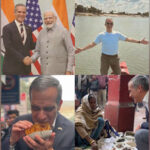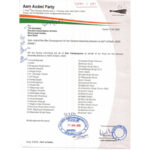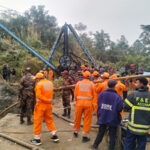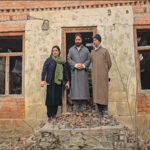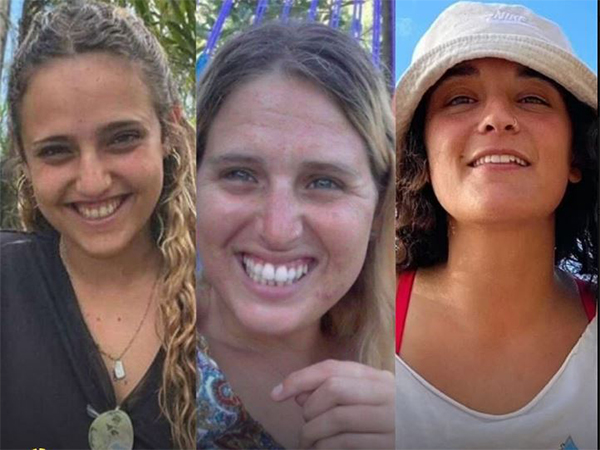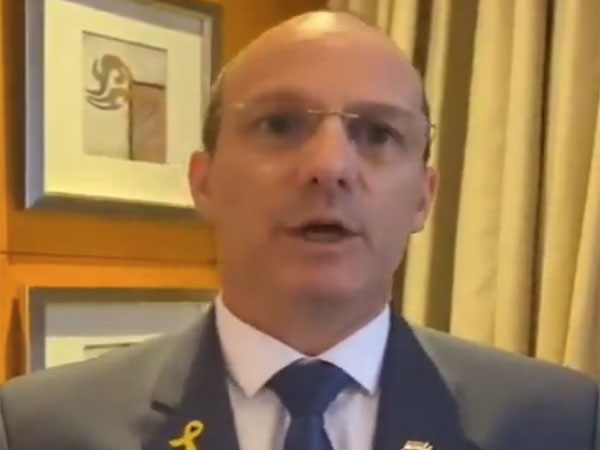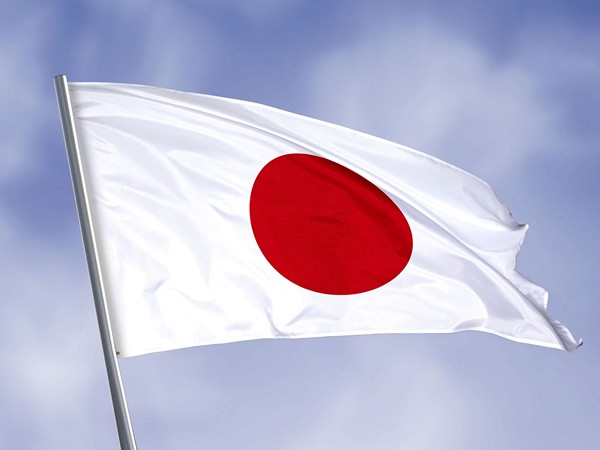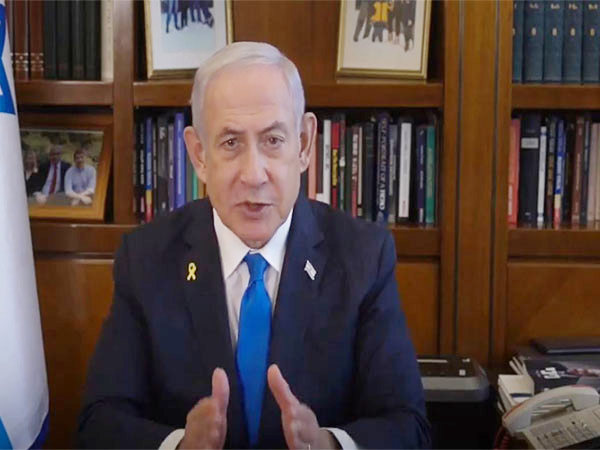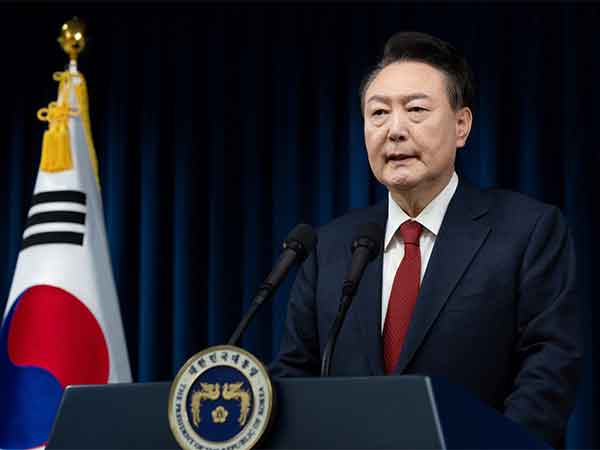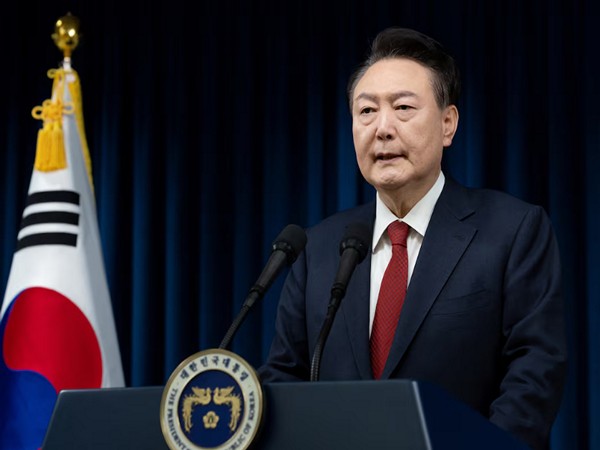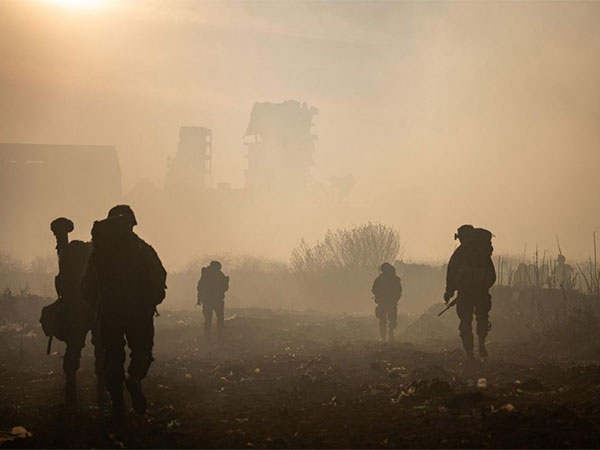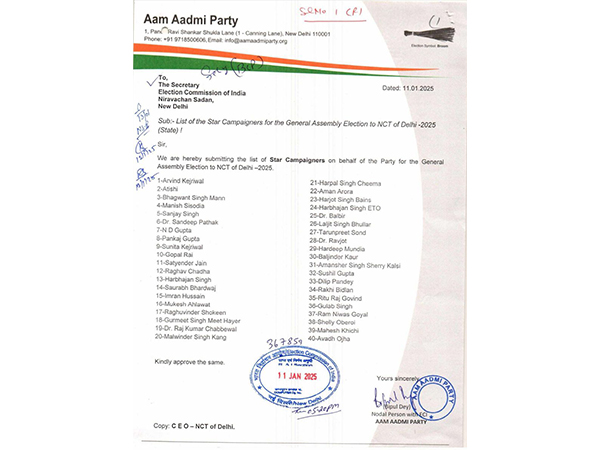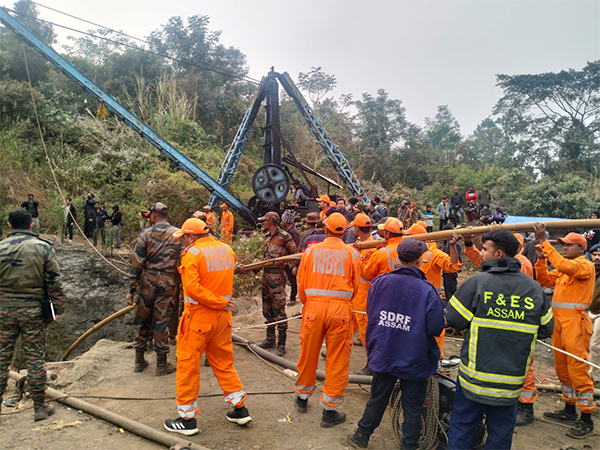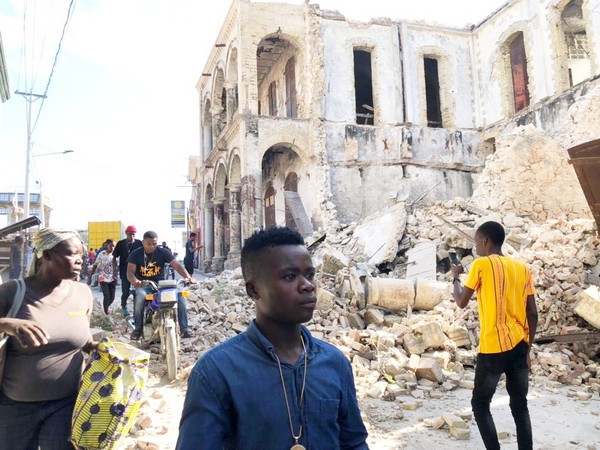
People walk along the street next to destroyed buildings following an earthquake in Jeremie, Haiti August 14, 2021, in this picture obtained from social media. Courtesy of TWITTER @JCOMHaiti/ via REUTERS ATTENTION EDITORS - THIS IMAGE HAS BEEN SUPPLIED BY A THIRD PARTY. MANDATORY CREDIT. MUST NOT OBSCURE LOGO - RC205P9DETG5
Port-au-Prince [Haiti], August 18 (ANI): About 1.2 million people, including 540,000 children, have been affected by the powerful earthquake that hit Haiti on Saturday, according to United Nations Children’s Fund.
The hardest-hit departments of South, Nippes and Grand’Anse are now being drenched by Tropical Depression Grace, which is further disrupting access to water, shelter, and other basic services, UNICEF said in a statement.
Flooding and mudslides are likely to worsen the situation of vulnerable families and further complicate the humanitarian response.
Search and rescue efforts are underway, with official reports of over 1,941 deaths and 7,000 injured.
More than 84,000 houses have been damaged or destroyed, along with public infrastructure, including hospitals, schools and bridges.
“Last night, I saw strong winds and heavy rainfall strike the same areas already affected by the earthquake,” said Bruno Maes, UNICEF‘s Representative in Haiti, who is currently in Les Cayes.
“Countless Haitian families who have lost everything due to the earthquake are now living literally with their feet in the water due to the flooding.”
“Right now, about half a million Haitian children have limited or no access to shelter, safe water, health care and nutrition,” said Maes.
Criminal violence and insecurity complicate the humanitarian response, and the main road from Port-au-Prince to the south of the country is controlled by gangs. Nevertheless, UNICEF was able reach affected areas with medical supplies within hours of the earthquake.
A UNICEF truck delivered six medical kits to three hospitals in Les Cayes, with enough supplies – including gloves, painkillers, antibiotics and syringes – to treat 30,000 earthquake victims over three months, the UN agency said.
UNICEF and partners are distributing tarpaulins for emergency shelter, latrines and showers; water reservoirs for safe water distribution; and hygiene kits including water treatment tablets, soap, menstrual hygiene material, and jerrycans.
In the courtyard of one hospital, UNICEF installed tents to shelter patients who feared the building could collapse.
Additional supplies, including education and recreational kits will be rapidly mobilized, and UNICEF is planning community-based engagement activities to prevent family separation and to ensure protection and psychosocial support for children.
UNICEF is working closely with the government and partners to carry out rapid assessments of children’s needs.
UNICEF estimates that it will need USD 15 million to respond to the most urgent needs of at least 385,000 people including 167,000 children under the age of five for a period of eight weeks.
This initial funding requirement will be reviewed and adjusted in the coming weeks as the impact on children and families becomes clearer, the UN agency said.
Toll rises to 1941
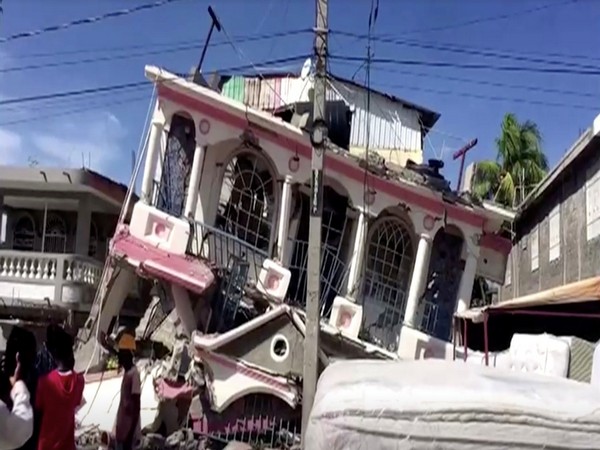
The death toll from the powerful earthquake that struck southwestern Haiti on Saturday climbed to 1941, Xinhua reported citing authorities.
The quake destroyed 2,868 homes and damaged another 5,410.
The destruction has also pushed hospitals to the brink and blocked roads that would carry vital supplies.
The earthquake struck at 8:30 am on Sunday about 10 kilometres deep, with its epicentre about 12 kilometres (7.5 miles) northeast of Saint-Louis-du-Sud in the southwest part of the country. (ANI)
Haiti declares national mourning for victims of earthquake
Port-au-Prince [Haiti], August 17 (ANI/Sputnik): Haitian Prime Minister Ariel Henry has announced a three-day mourning period for the victims of the Saturday earthquake in the country, which killed over 1,400 people.
“The country is facing a catastrophe that has caused plenty of suffering, and starting tomorrow we decided to declare a three-day national mourning,” Henry said on Monday.
The prime minister called for solidarity as Haiti is currently in a very precarious position — the natural disaster struck the country a month after the assassination of President Jovenel Moise.
On Tuesday, the government will engage in a dialogue with the political establishment, businesses, civil society and diaspora in order to determine a way out of the current humanitarian crisis.
The island nation was hit by a 7.2 magnitude earthquake last Saturday, which killed at least 1,419 people and injured almost 7,000. (ANI/Sputnik)
